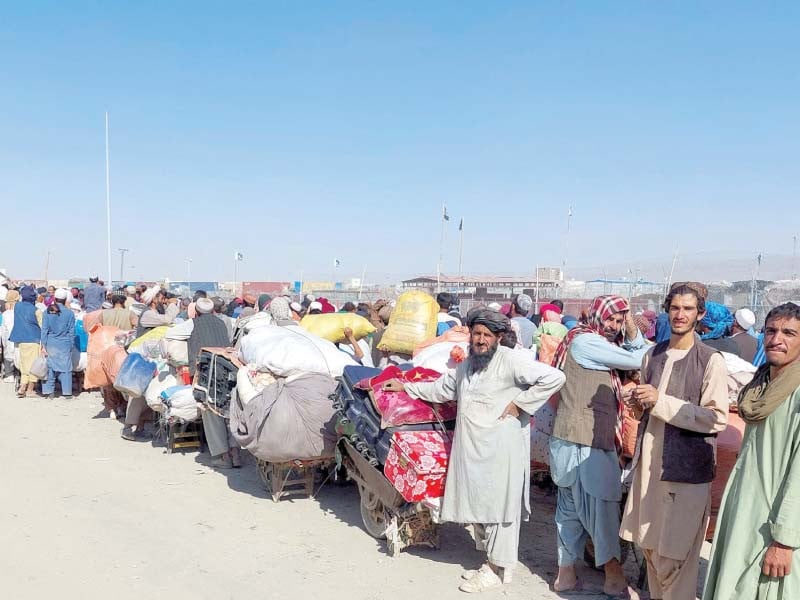
As the deadline for foreign nationals to leave the country expires, Pakistan will start rounding up and expelling the foreign nationals, including hundreds of thousands of Afghans, from Thursday.
Caretaker Interior Minister Sarfraz Bugti on Tuesday announced that the provincial and federal authorities would begin a major crackdown on unregistered migrants in phases starting from Nov 2.
The government will decide the border for deportation of migrants.
The country announced its plan to repatriate the illegal migrants earlier this month, saying the Afghan nationals had been behind attacks, smuggling, and other crimes in its territory – a stance dismissed by Kabul.
"Only two days are left for a voluntary return," Sarfraz Bugti said in a video statement released on Tuesday.
The operation would be "lengthy and gradual", he added. "We are not deporting any refugees. Only those who are completely illegal will leave Pakistan."
In an interview with a private news channel, Bugti said that authorities would strictly begin tracking and arresting foreigners staying in the country without registration or documents from Nov 2.
He said those who were leaving voluntarily would be assisted by the government at temporary centres.
"We will try to provide them food and health facilities for two to three days," he added. “All basic facilities will be provided at these centres to illegal foreign nationals.”
Read Illegal aliens to be housed in camps till expulsion
He stated that all provincial governments would play an active part in the operation against illegal foreigners, adding that the committees had been formed at divisional and district levels.
No manhandling
Separately, the caretaker interior minister directed officials and agencies to behave respectfully with undocumented immigrants while detaining them in holding centres after the deadline.
Talking to media persons, he said strict action would be taken against officials who were found involved in manhandling of the immigrants, including Afghans, while transporting them to the holding centres.
He said the ministry had established a complaint cell with a hotline number to immediately address the complaints of mistreatment or manhandling with any illegal immigrant.
“We have given clear instructions to all agencies and officials to treat women, children, and elders with special care and respect,” the minister said, adding that the arrangements for food and medical facilities were made in the holding centres.
Bugti also warned of strict action against locals helping the immigrants and providing them shelter.
“Any Pakistani who will rent his house to illegal immigrant will be considered as a partner in crime and treated equally according to the law,” he added.
He said that respect for women and elders was being considered during the evacuation, adding that children were being treated with compassion, and around 200,000 illegal people had gone back during the last two months.
HRCP raises concerns
Meanwhile, the Human Rights Commission of Pakistan (HRCP) expressed concern over the government’s decision to expel undocumented foreigners, urging the United Nations High Commissioner for Refugees (UNHCR) to ensure protection for Afghan refugees.
In a letter addressed to the UN High Commissioner for Refugees Filippo Grandi, HRCP Chairperson Hina Jilani said the move to expel Afghans could “trigger a humanitarian crisis”.
“The decision amounts to forced repatriation, which is not recognised under international customary law, and will invariably affect vulnerable refugees and asylum seekers, which include women, children, the elderly, persons living with disabilities, persons from low-income groups and Afghans at risk because of their professions — many of whom fled Afghanistan after the Afghan Taliban took over the government in August 2021,” the letter stated.
It noted that despite criticism from the human rights organisations, the government had not shown any signs of reconsidering its decision and had gone so far as to prevent civil society members from expressing their views on the matter.
It highlighted that the interim interior minister had announced that the current phase of expulsion would be followed by the deportation of foreign nationals with legitimate documents, including Afghans, who held proof-of-residence cards.
The HRCP, the letter went on to say, had also received reports of harassment, intimidation, extortion and arrests of Afghans while media reports suggested that 77 Afghan refugees with legitimate documents had already been deported.
“While the HRCP recognises that the government may have legitimate security concerns tied to a small number of foreign nationals residing in the country illegally, we believe that humanitarian concerns must override security interests,” it said, adding that such a decision did not fall within the mandate of an unelected government.
“We also believe that refugees and asylum seekers should be allowed to thrive along with their hosts and that the rights of both are not mutually exclusive.”
The commission regretted that Pakistan was not a signatory of the 1951 Refugees Conventions, lacked a national asylum system, and addressed issues pertaining to Afghan refugees through “ad hoc and discretionary policies”.
It highlighted that Pakistan was bound by universal customary laws of non-refoulment which prohibited deporting anyone to a place where they would face a real risk of persecution, torture, ill-treatment or life threats.
“The HRCP believes that the Pakistan government’s actions in this context amount to violations of international customary law, given that the prevailing circumstances in Afghanistan are not at all conducive to the safe return and reintegration of vulnerable refugees and asylum seekers,” the letter said.
It subsequently urged the UNHCR to call on the government to extend the Nov 1 deadline, ensure that no migrants or refugees with legitimate documentation were expelled, ensure refugees were treated with dignity and facilitate their access to documentation.
The letter also suggested that the government should devise a “rights-based domestic policy” on refugees, revisit the “flawed” Foreigners Act of 1946 and sign the 1951 Refugees Convention and the 1967 Protocol Relating to the Status of Refugees.
Meanwhile, the National Commission on the Status of Women, in a letter written to Interior Minister Bugti, said there were approximately 2.5 million widows in Afghanistan, some of whom came to Pakistan in search of livelihood.
“These women are journalists, doctors, software engineers, and others who are undocumented due to various circumstances beyond their control,” it stated.





1726230657-0/royal-(1)1726230657-0-165x106.webp)

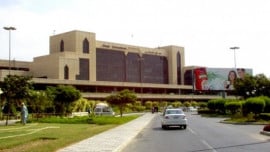

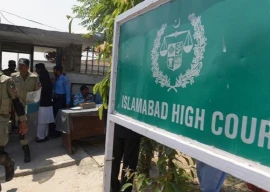
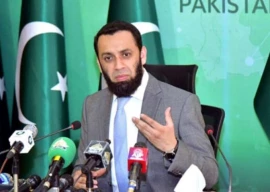

1698432018-0/image-800x600-(32)1698432018-0-270x192.webp)
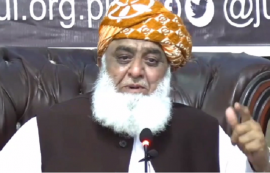
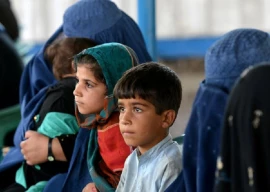
1698735635-0/download-(9)1698735635-0-270x192.webp)






COMMENTS
Comments are moderated and generally will be posted if they are on-topic and not abusive.
For more information, please see our Comments FAQ